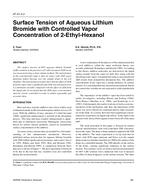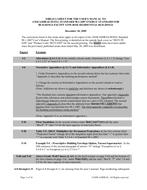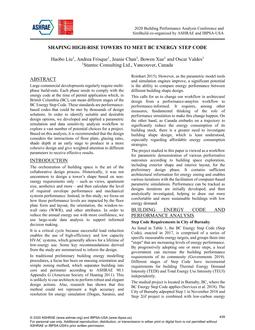Click here to purchase
Thermal energy storage can potentially reduce electric demand in commercial buildings. Among different technologies, phase change materials (PCMs) embedded in the building envelope have the potential to shift cooling energy demand away from peak hours. Although many studies have studied the thermal performance of PCMs in building envelope, moisture transfer has not been effectively analyzed. Convective heat transfer between the envelope and air plays an important role on the overall hygrothermal performance. Furthermore, PCM encapsulation methods present different enclosure materials and therefore, influences the heat and moisture transfer across the envelope. This study is part of a larger project that empirically validates PCM models used in building energy modelling software for wall assemblies. This study validates WUFI using data from two walls having different PCM encapsulation types. Further analysis is done to investigate the hygrothermal behavior of an exterior wall with PCMs subjected to precooling. The results of the validation study indicate the importance of initial relative humidity values when comparing the heat and moisture transfer models with PCM inclusions. Based on the analyzed wall, results show that there is no risk of hygrothermal damage to the wall assembly and the application precooling doesn’t impact the drying potential.
Citation: Thermal Buildings XIV 2019
Product Details
- Published:
- 2019
- Number of Pages:
- 10
- Units of Measure:
- Dual
- File Size:
- 1 file , 1.5 MB
- Product Code(s):
- D-Bldgs19-021


